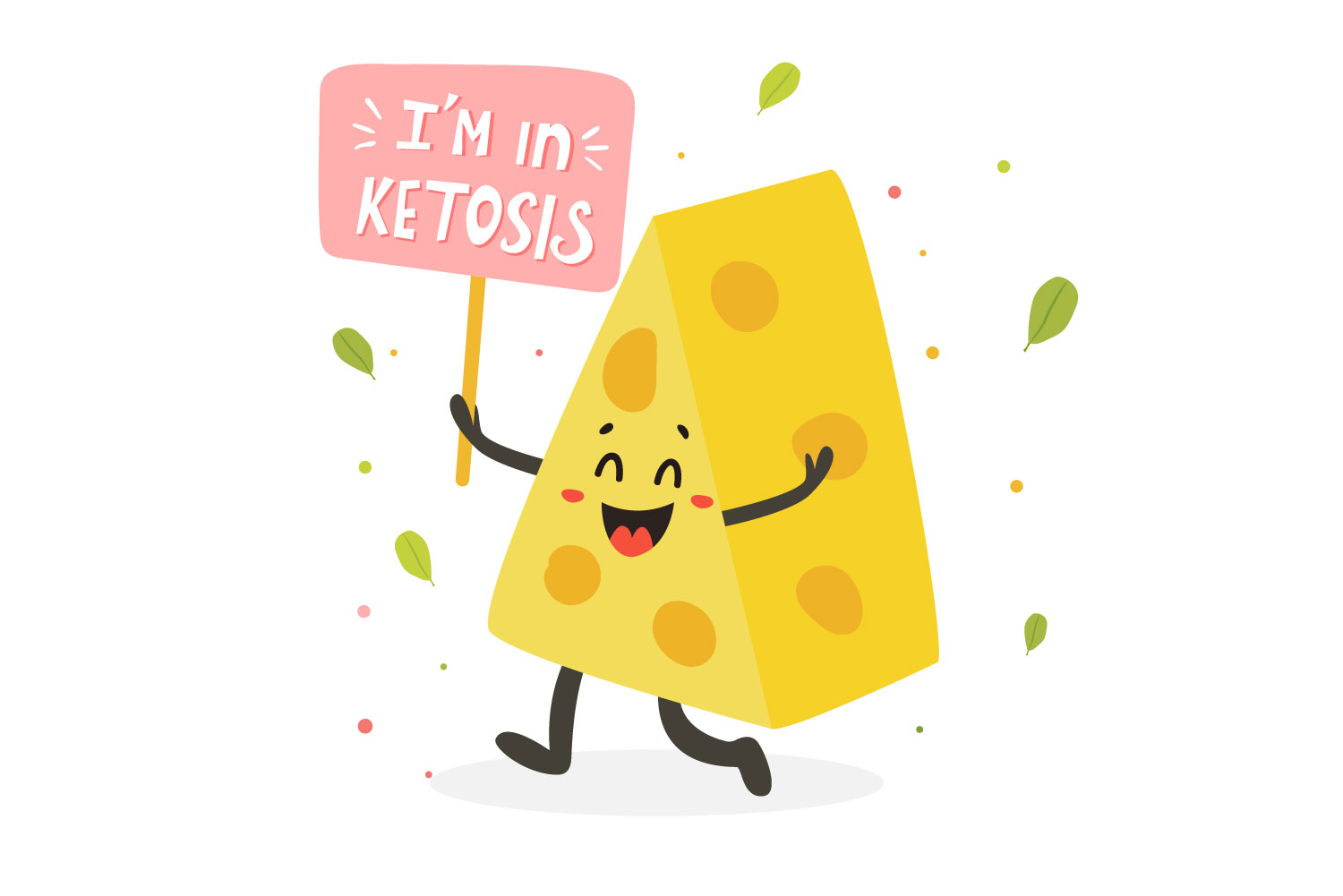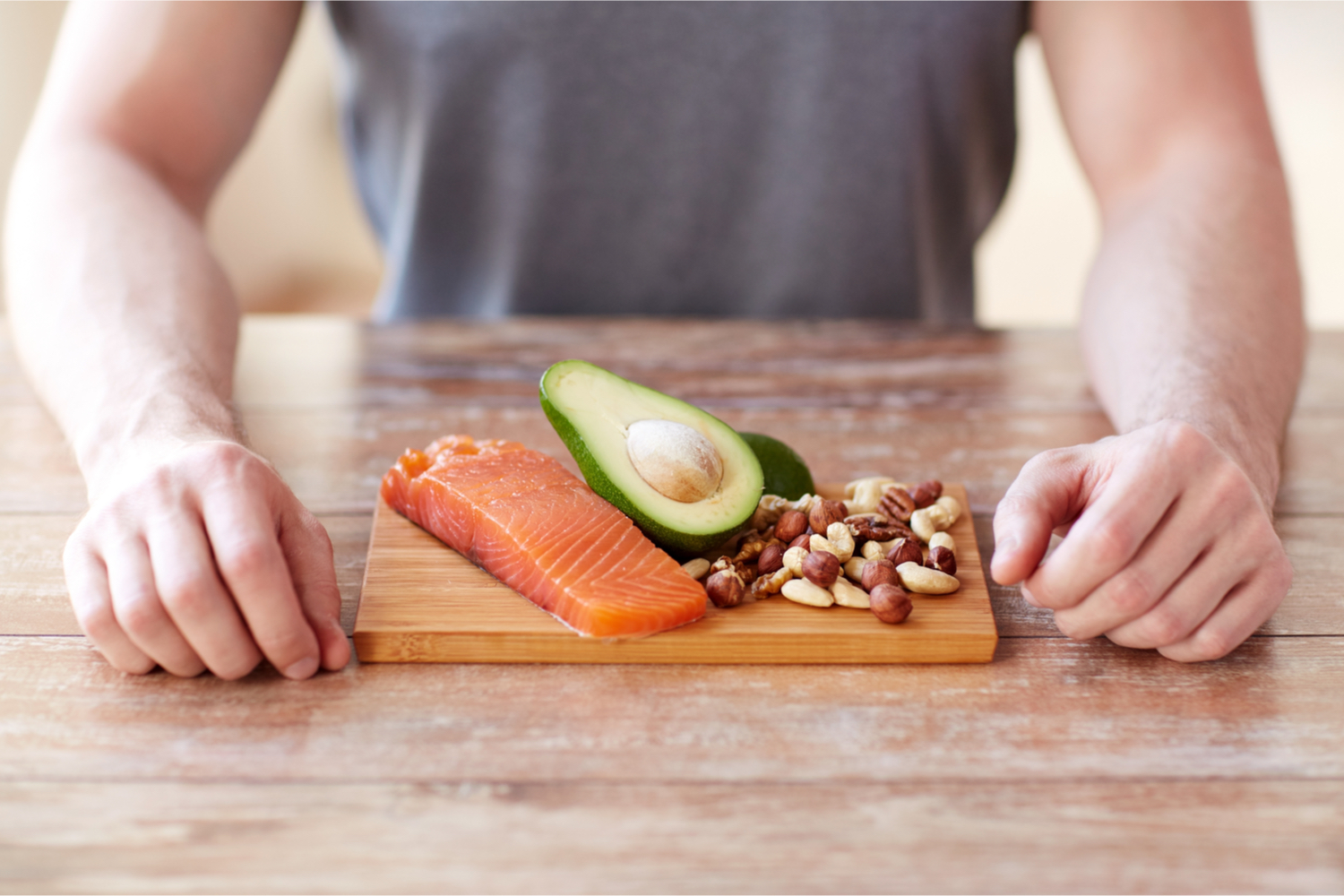SUMMARY
Many of today’s deadliest diseases have one thing in common: They’re caused by chronic inflammation.
You may be wondering what factors trigger an ongoing inflammatory response in your body. This type of systemic inflammation can be caused by your dietary choices. If the food on your plate regularly contains lots of inflammatory compounds, you’re laying the groundwork for chronic inflammation to compromise your health.
That means it’s essential to have complete knowledge regarding the foods that cause inflammation. If you know what these foods are, you can make an active effort to reduce or eliminate their presence in your diet.
In this article, we will:
- Discuss the basics of inflammation
- Share insight on the health consequences of chronic inflammation
- Provide a list of foods that cause inflammation in the body
What is inflammation?
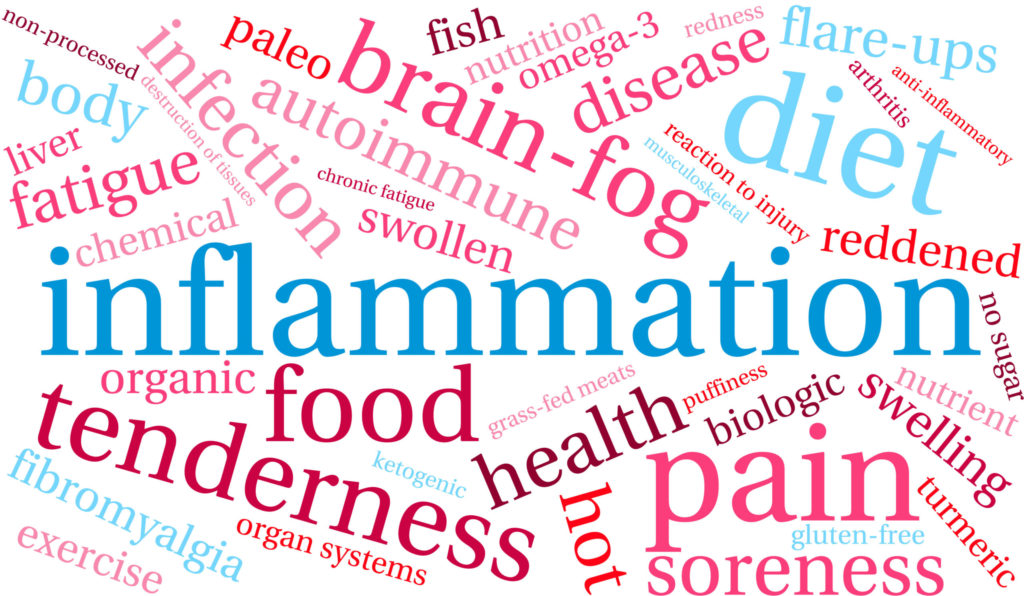
Before we take a look at the foods that cause inflammation, it’s important to get a clear understanding of inflammation itself.
Inflammation is a process that the body uses to protect itself from harmful agents. It’s a tool used to promote healing. In some cases, inflammation can be positive. But if your body is always in a state of inflammation, it can take a toll on your health and put you at risk for deadly diseases.
There are two types of inflammation: acute and chronic.
Acute inflammation often takes place in response to an injury. For example, if you bruise your knee, it will trigger acute inflammation. Your immune system will send white blood cells to surround the injured area and speed up the healing process. This creates visible redness and swelling. Acute inflammation will also take place if you have an infection such as the flu or pneumonia. In this situation, inflammation occurs as your immune system works to rid the body of the virus or pathogens that have caused the infection.
What about chronic inflammation? Foods that cause inflammation often play a role in this condition. This type of inflammation typically occurs when there are unwanted substances in the body that are present on an ongoing basis. If you’re a smoker, the cigarette smoke that you continually inhale will cause chronic inflammation. The body views fat cells as an undesirable substance. If you have an excess of fat cells — especially belly fat — it can put the body in a state of chronic inflammation, one in which your immune system is constantly at war with these cells.
Signs of inflammation

You can usually identify acute inflammation via symptoms such as pain, redness and swelling.
What about the chronic version of this condition — the one that’s often triggered by foods that cause inflammation? Chronic inflammation can be difficult to spot. This can make it easy to overlook.
Here are some signs that indicate chronic inflammation:
- Mouth sores
- Rashes
- Abdominal pain
- Fatigue
- Fever
- Chest pain
These symptoms may be relatively mild or oppressively severe. In some cases, they can linger for several years if the condition is left untreated.
Causes of chronic inflammation

So, what are the causes of chronic inflammation?
Foods that cause inflammation can put you at risk for this condition. But these foods aren’t the only things that can lead to a chronic, ongoing inflammatory state.
Here are some of the most common culprits:
1. Untreated infection or injury
An infection or injury can trigger acute inflammation. If the cause of this condition is left untreated, it can lead to inflammation that’s chronic.
2. Autoimmune disorder
If you have an autoimmune disorder, your immune system will mistakenly attack healthy tissue. Over the long term, this will cause chronic inflammation.
3. Long-term exposure to toxins and irritants
Foods that cause inflammation aren’t the only harmful substances that can trigger an inflammatory response. Do you live or work in conditions that expose you to harmful industrial chemicals? If so, this could trigger chronic inflammation. This condition can also be caused by polluted air.
4. Chronic stress
Chronic stress is often viewed as a mental health issue. But it can trigger inflammation that affects your physical health if left unaddressed.
5. Smoking
The body views cigarette smoke as a toxic substance. If it’s constantly being inhaled, the body will respond by remaining chronically inflamed.
6. Obesity
The body views fat cells as harmful. The immune system will target these cells, and this can lead to chronic inflammation. Obese people are at high risk due to the high number of fat cells present in their bodies.
7. Diet
As we’ve mentioned, there are certain beverages and foods that cause inflammation. Ingesting these inflammatory foods and drinks on a regular basis can compromise your health.
Health consequences of chronic inflammation
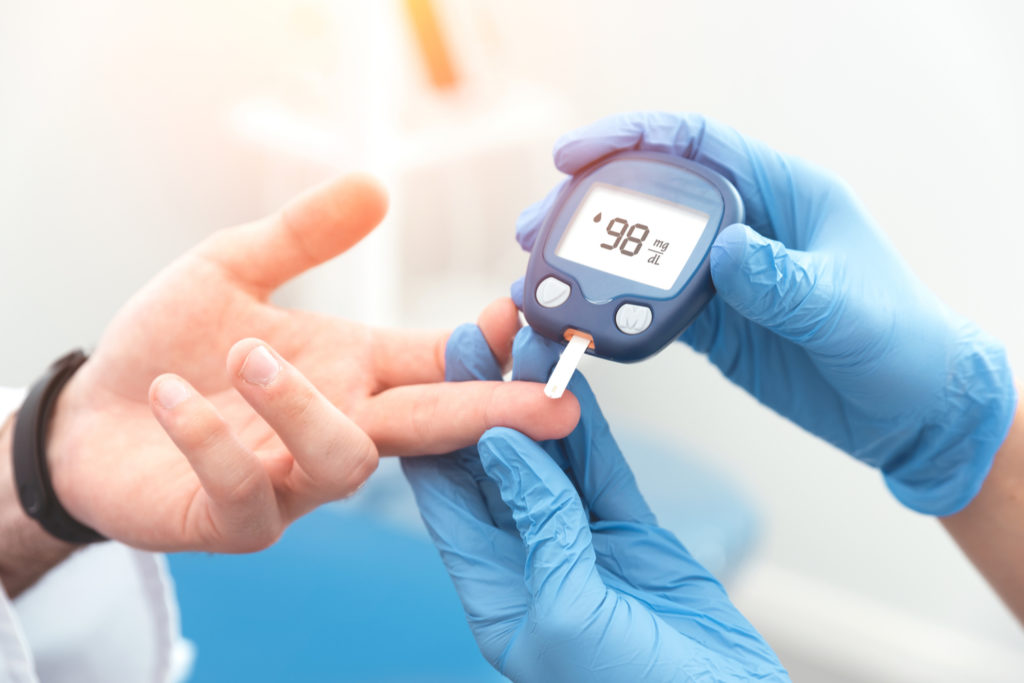
Do you regularly eat foods that cause inflammation? If your body is constantly dealing with the oxidative stress of an inflammatory response, it could eventually cause serious health problems.
Why does this happen? Over time, the aggressive response triggered by chronic inflammation can start damaging healthy tissues, cells and organs in your body. This can eventually damage your DNA. It can also lead to internal scarring and tissue death.
All these problems can eventually lead to the development of these diseases:
- Cancer
- Rheumatoid arthritis
- Cardiovascular disease
- Asthma
- Obesity
- Type 2 diabetes
- Alzheimer’s disease
Foods that cause inflammation

Interested in reducing your risk of developing conditions such as heart disease and arthritis? It all starts with taking a close look at your diet.
A healthy diet that minimizes or eliminates foods that cause inflammation will support your health and make you less likely to develop a chronic disease.
Here are some inflammatory foods that you should aim to avoid:
1. Processed meat

Processed meats are included among the most harmful foods that cause inflammation. The list of processed meats includes menu items such as bacon, sausage, ham, smoked meat and beef jerky.
Relative to other meats, processed meats are higher in advanced glycation end products (AGEs). AGEs are harmful compounds that are formed when meats are cooked at high temperatures. Your body eliminates AGEs with the help of antioxidants and enzymatic activity. However, if you ingest a lot of AGEs, it will be impossible for the body to eliminate them in an efficient manner, and they will accumulate. This accumulation can cause oxidative stress and inflammation.
Research has established a strong link between processed meat consumption and colon cancer. Processed meat consumption has also been linked to heart disease, diabetes and stomach cancer.
2. Refined carbohydrates

Low-carb diets are currently the rage. However, not all carbs are bad for your health, and some carbs provide valuable nutrients. Whole foods with unprocessed carbs include choices such as roots and fruits. These foods contain valuable antioxidants and a host of other compounds that can provide health benefits.
However, the picture is pretty clear when it comes to a specific subgroup of carbs: those that are refined. Foods that cause inflammation are often loaded with refined carbs.
Unlike carbs that come from whole foods, refined carbs have typically had much of their fiber removed. Fiber provides valuable health benefits. It helps you feel full, and it can help support healthy blood sugar levels. It can also feed the beneficial bacteria that lives in your gut.
Also, refined carbs have a higher glycemic index than carbs found in whole foods. Foods with a high glycemic index can cause your blood sugar level to spike.
Research has linked high-glycemic foods such as refined carbs with heart disease and type 2 diabetes.
So, which foods should you avoid if you want to steer clear of refined carbohydrates? These foods all contain refined carbs:
- Candy
- Foods with refined grains
- Chips
- Pizza
- Pastries
- White bread
- Cookies
- Cakes
- Certain cereals
- Sugary sodas
- Processed foods with added sugar or flour
3. Artificial trans fats
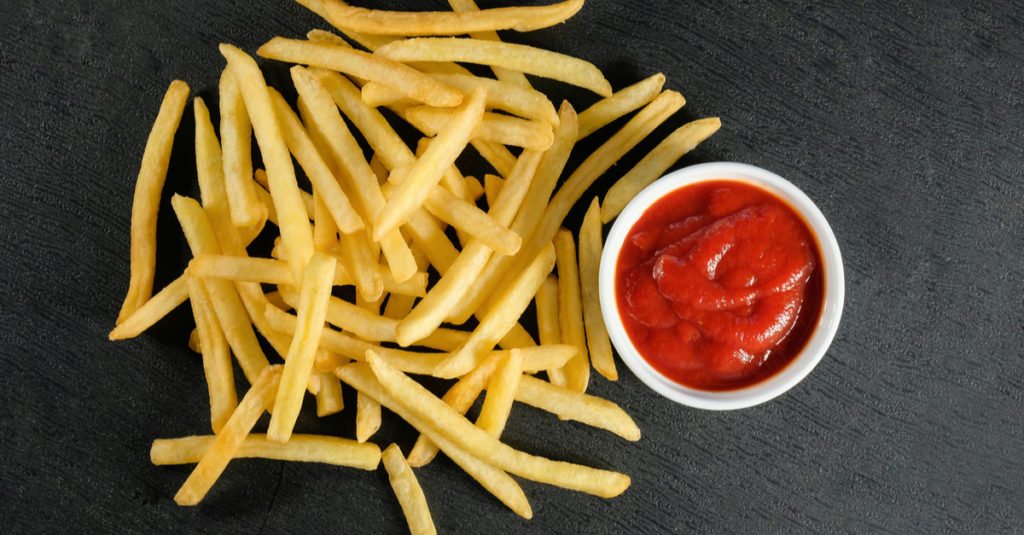
Healthy fat can play an important role in a nourishing diet. You can find healthy fat in foods such as nuts and fatty fish.
Artificial trans fat is different. This type of fat is found in foods that cause inflammation, and it can cause serious damage to your health.
What exactly is artificial trans fat? Artificial trans fat is created when hydrogen is added to unsaturated fat. Unsaturated fat is liquid in nature, and the addition of hydrogen gives it a more stable structure, turning it into a solid fat.
On food labels, you’ll often see artificial trans fats listed as partially hydrogenated oils.
Artificial trans fat is different from natural trans fat. Naturally occuring trans fat is found in red meat; you’ll also find in it a dairy product such as milk, butter or cheese. Natural trans fat isn’t as inflammatory as trans fat that’s been artificially made.
Research shows there’s a clear link between artificial trans fat and vascular inflammation that causes heart disease.
The foods listed below contain artificial trans fat:
- French fries
- Fried foods from fast food restaurants
- Certain margarines
- Some vegetable shortenings
- Certain pastries
- Some packaged cakes and cookies
- Certain types of microwave popcorn
4. Added sugar and high fructose corn syrup

If you eat lots of packaged foods, it’s likely you’re ingesting lots of sugar. Packaged foods are often high in added sugar. Many of these foods use sugary sweeteners such as high fructose corn syrup.
Refined sugar and high fructose corn syrup are both foods that cause inflammation. Research has linked high sugar intake with conditions such as weight gain, obesity, insulin resistance, diabetes, cancer, fatty liver disease and chronic kidney disease. Also, refined sugar and high fructose corn syrup can cause inflammation in the cells that line your blood vessels. This can eventually cause heart disease.
These foods that cause inflammation are all high in added sugar:
- Candy
- Soft drinks
- Cakes
- Cookies
- Donuts
- Pastries
- Certain cereals
5. Vegetable oils

The body needs to maintain the right balance of omega 3 fatty acids and omega 6 fatty acids to keep inflammation at bay. If consumption of omega 6 fatty acids outweighs consumption of omega 3s, research shows that the imbalance can trigger inflammation. Omega 6s aren’t bad for you per se, and they’re actually part of a healthy diet; you just need to make sure they don’t dominate omega 3s in your dietary choices.
These vegetable oils contain omega 6 fatty acids:
- Corn oil
- Soybean oil
- Safflower oil
- Sunflower oil
- Canola oil
6. Excessive alcohol

The list of foods that cause inflammation also includes a beverage: alcohol. While moderate alcohol consumption has no major health risks, heavy drinking can create inflammation that takes a toll on your wellness.
Heavy alcohol condition has been linked with a condition called leaky gut syndrome. This condition can create systemic inflammation that leads to organ damage.
So, what limits should you keep in mind if you want to make sure you’re consuming a safe amount of alcohol? According to the Centers for Disease Control and Prevention (CDC), alcohol intake should be limited to two drinks or less per day for men and one drink or less per day for women.
Next steps
Avoiding foods that cause inflammation is a key step on your health journey. It’s also important to note that certain foods have an anti-inflammatory effect. The anti-inflammatory properties found in whole foods such as leafy greens, nuts, fruits and fatty fish can prevent systemic inflammation and bolster your health. It’s a good idea to add these foods to your eating plan.
If you want to include more anti-inflammatory foods in your diet, subscribe to Fresh N Lean. Our meals are made with healthy whole foods, and we deliver straight to your front door. Our chef-prepared meal plans range from paleo to vegan.
Fresh N Lean is the nation’s largest organic meal delivery service. Our tasty, chef-prepared cuisine is always fresh and never frozen, and we offer convenient meal plans like Protein+, Keto, Paleo, Standard Vegan and Mediterranean. Choose Fresh N Lean for affordable nutrition, delivered to your doorstep.

